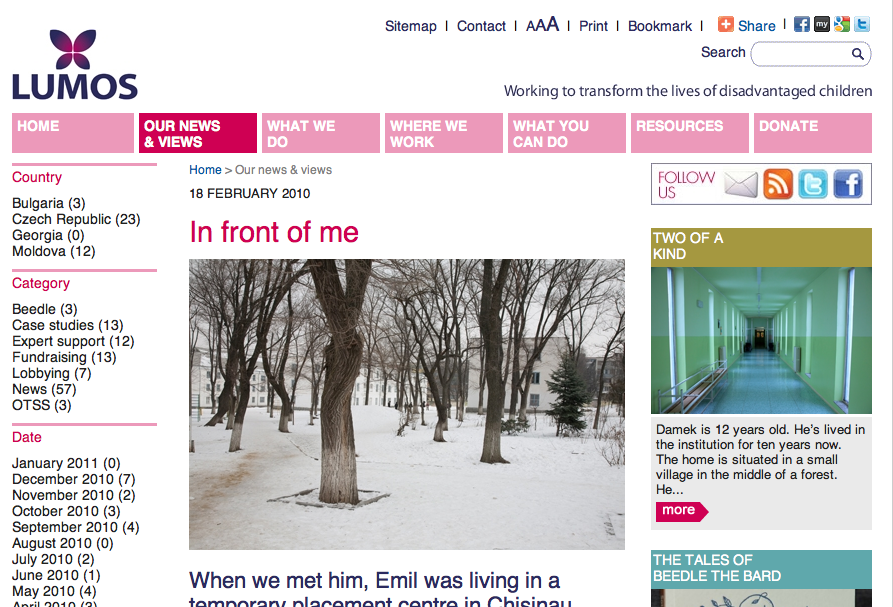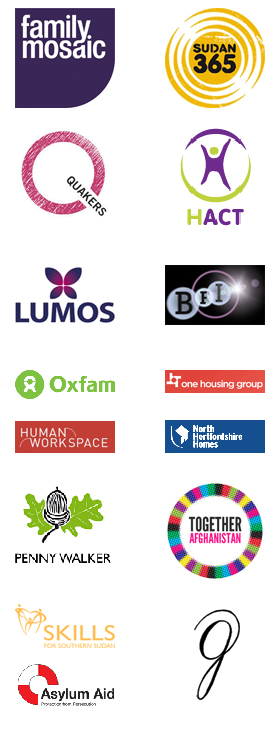Sometimes a job comes along that knocks you sideways,
and teaches you a lesson or two in the process. When DC got in touch with me about Lumos, my initial reaction was, well, to be honest, it was to tell my wife, children and mate Fern, in that order. Primarily because Lumos is the rebranded charity set up with J K Rowling, and they’re all avid Harry Potter enthusiasts.
Once I’d answered all their questions – “No, I won’t be able to ask her for a quick autograph if I ever happen to be presenting my ideas to the Board” – I focused on the job in hand. A review of the brand, and development of an appropriate tone of voice. And that’s when the job became very real.
My work at the Refugee Council had brought me into contact with the plight of unaccompanied children, many of whom are still being detained in the UK (another broken promise…). The focus of Lumos, however, was on children living in institutions throughout Europe, mainly in the former Soviet republics.
The reality of their lives was brought home to me as I read through a report written by Georgette Mulheir, the organisation’s director of operations and renown expert on deinstitutionalisation. The report was a simple, but incredibly evocative account of a visit she’d made to an institution in Moldova:
The first thing that greets you is the smell: it’s a specific stench that, unless you’ve experienced it, it’s hard to define. Imagine a combination of stale urine, boiled cabbage and damp. And then add a considerable measure of fear. It’s a smell that remains with you long after you leave the building. And, no matter how much they wash, it’s a smell that remains on many children for weeks after they escape from an institution and move into a home.
She describes the grey buildings, whose design was replicated in other institutions across the former Soviet bloc. She talks about the prevalence of bedwetting amongst the 120 children living there, and explains some of the reasons why they wet themselves. And she relates the stark amenities available to the girls there, as well as the dangers they face every night from the older boys.
As a father of three daughters, her words haunted me. I looked at my three girls and couldn’t help but place them in similar circumstances. And I couldn’t help but realise how lucky we are.
It was an emotional experience, editing Georgette’s copy, as well as writing and editing all the case studies and most of the copy on the site. I hope, though, that the words – and the architecture I recommended for the site – has helped Lumos, so they can continue to help those girls, and those children, who remain in institutions across Europe.

